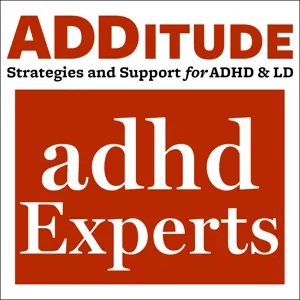Podcast Summary
Is brain training effective?: Brain training apps and games are a subject of ongoing research with some studies suggesting they can be effective, but skepticism remains. Look for science-backed tools and approach with a critical eye.
The field of brain training, which includes the use of apps and games to improve memory, eyesight, and hearing, is a subject of ongoing research and controversy. While some studies suggest that these tools can be effective, others have failed to find significant results. Researchers like Doctor Aaron Seitz from the University of California, Riverside, are working to develop science-based brain training games, but the field is still in a state of flux, with some researchers expressing skepticism about the effectiveness of these tools. The analogy often used is that brain training is like physical exercise, but the research is not yet conclusive on its efficacy. It's important for consumers to approach brain training apps and games with a critical eye and to look for those that are backed by scientific evidence. For more information on the latest research in psychology, check out the American Psychological Association's virtual convention at convention.apa.org/podcast.
Exploring the Effectiveness of Brain Training Games: Researchers are investigating the impact of brain training games on diverse populations and comparing different training methods, while acknowledging the need for more funding and research.
While there is ongoing research in the field of brain training, particularly in areas like perceptual skills and memory, funding remains a significant barrier. Researchers are excited to explore the effectiveness of various training methods and compare their outcomes, especially in diverse populations. The field of perceptual learning has shown that certain training approaches can lead to changes in visual and auditory processes, but learning tends to be specific to the details of the training. Researchers at the ECR Brain Game Center are applying this knowledge to other areas of brain training, such as memory, to understand the similarities and differences in learning processes. Brain training games show promise for individuals with deficits like hearing loss, ADHD, or dementia, as well as for those looking to improve their cognitive or perceptual skills without a diagnosed condition. However, more research is needed to fully understand the benefits and limitations of brain training games in various populations and contexts.
Brain training results not definitive: Despite promising signs, brain training effects are not consistently well-controlled and do not fully address individual differences. Long-term retention and competitive advantages are also uncertain.
While brain training shows promising results, particularly for individuals with impairments, the data is not yet definitive. Studies have shown encouraging signs of improvement in various patient populations, but the results are not consistently well-controlled and do not fully address individual differences. The effects of training on college students, who are at their cognitive peak, are also unclear. In contrast, improvements in athletes, even small ones, can lead to significant competitive advantages. The persistence of training effects is also a question, with some studies suggesting long-term retention and others showing fading effects or new learning emerging after the study ends. Theoretical ideas suggest that training could lead to accumulated learning for some individuals, but the data is insufficient to make strong conclusions. Brain training, such as Sudoku or crossword puzzles, is popularly believed to make brains sharper and improve memory, but the evidence is not yet conclusive.
Continuous learning is key to maintaining cognitive function: Continuously learning new tasks and moving on to the next challenge is more effective for maintaining cognitive function than repeatedly doing the same task once mastered.
While brain training activities like Sudoku and crossword puzzles can be helpful for maintaining cognitive function, simply doing the same task repeatedly once mastered may not provide additional benefits. Instead, continuing to learn new tasks and moving on to the next challenge is a more effective approach. However, turning these tasks into games is not always beneficial. While games can make learning more engaging, they can also potentially distract from the learning experience if not designed properly. It's essential to strike a balance between entertainment and learning outcomes. Proper game design, which reinforces desired behaviors and encourages engagement with the learning material, can be an effective way to encourage people to learn and stay focused.
Understanding the individual differences and effectiveness of working memory training: A current NIH study recruits 30,000 participants to investigate moderators and mediators of working memory training, identifying subject differences and various training conditions to provide a more nuanced understanding of its benefits.
The field of brain training games is exploring new avenues of research to understand the individual differences and effectiveness of various training methods, rather than focusing solely on whether they work or not. A current study funded by the NIH is recruiting 30,000 participants to investigate the moderators and mediators of working memory training. The study aims to identify subject differences, such as personality and technology use, that may impact learning propensity. Additionally, it will examine various training conditions and their effects on individuals. The findings of this study could lead to a more nuanced understanding of working memory training and its potential benefits, which may vary from person to person and task to task. If you're interested in participating, you can sign up through the study's webpage, which will be linked in the podcast notes. For more information, check out the Scientific American article about the study, also included in the podcast notes.
Approach brain training games with skepticism: Look for games backed by FDA-approved clinical trials or scientifically sound studies, try with caution, and provide feedback to improve unproven techniques.
When it comes to brain training games, it can be challenging for consumers to determine which ones are effective and worth trying. With the controversy surrounding deceptive claims made by some companies, it's essential to approach brain training games with skepticism. Look for games that have undergone clinical trials approved by the FDA or scientifically sound studies, but keep in mind that what works for one person may not work for another. If a game doesn't cost too much money and could potentially help, it's worth trying out. Many brain training games developed by research centers, including some free ones, are available for download on app stores. These games are designed to have better outcomes, and your feedback is valuable in helping to improve them. In summary, approach brain training games with a critical mindset, try them out with caution, and provide feedback to help researchers continue to develop promising but unproven techniques.
Research on Working Memory Training: UC Riverside researchers study working memory training effectiveness and target audiences, with some apps available for public use.
Researchers at UC Riverside are conducting studies on working memory training and its effectiveness. Some studies involve collecting data from participants to determine who would benefit most from these trainings and which types would be most effective. Other studies have apps available for public use, but the outcomes and target audiences are still unknown. For those interested, they can visit the UC Riverside Brain Game Center's webpage at braingamecenter.ucr.edu for more information and links to the games. The January issue of APA's Magazine Monitor on Psychology also features an article on doctor Seitz's work. Speaking of Psychology listeners can find previous episodes on their website or wherever they get their podcasts, and those with comments or ideas for future episodes can email speakingofpsychology@pa.org. This podcast episode was produced by Lee Winerman, and Chris Kundian handled the sound editing.




![13: Order of operands [*]](https://www.podcastworld.io/podcast-images/wes-carroll-s-puzzler-2lw82c94.webp)
